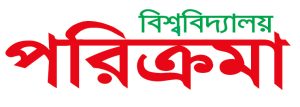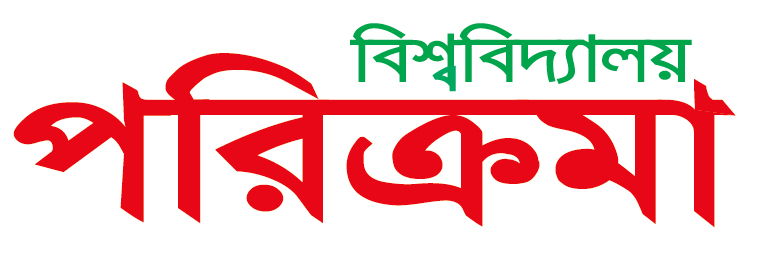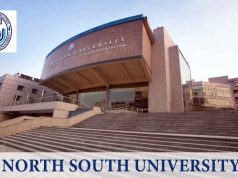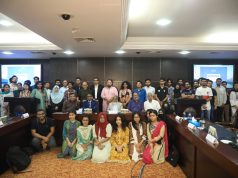
Porikroma Desk : Higher Education embodies the persuit of excellence and self-discovery, preparing learners for future challenges while enriching their lives with the transformative power of education. At the higher education level, students persue undergraduate and graduate degrees, such as Bachelor’s, Master’s and Doctorate degrees, depending on their academics and career aspirations. If refers to the level of education that follows secondary education (high school) and provides advanced academic and professional knowledge and skills.
When anybody talks about higher education, he/she usually thinks about a four-year college or university degree. But higher education after higher secondary school can take on many different forms.
Not only there are many different types of four-year college-university degrees, but there are ‘alternative to typical four-year degree’ that could be a better fit for students’ interests and future career goals.
The foundation of the educational system in Bangladesh was laid down during the period of British rule. The system has three levels—(i) Primary, (ii) Secondary/Higher Secondary, (iv) Higher Education.
Higher education in Bangladesh has experienced phenomenal growth over the years in terms of student enrollment, subjects taught, female enrollment, and growth in the number of universities. A paradigm shift also took place in 1992 when private entities were allowed to establish and operate universities.
Types of Higher Education in Bangladesh:
Pass Bachelors Degree
Honors Bachelors Degree
Professional Bachelors Degree
Postgraduate/Masters Degree
Professional Master’s Degree
Master of Philosophy
Doctor of Philosophy (PhD)
Pass Bachelors Degree: A degree given to university or college students who have passed their exams, but not well enough to get honours degree. During a pass Bachelors program, students do not specialize in a certain subject, but they choose a track. For example, they choose the science track with the electives Chemistry, Mathematics, and Physics. They do not specialize in just 1 in these subjects. Duration of a Pass Degree is 3 years.
Honors Bachelors Degree: During a Horours Bachelor’s program, students specialize in a certain field. They only take Soil Science, for example. This is different from Pass Bachelors program, in which students do not specialize. Honors Bachelors degree is earned by completing a typical 4-year degree with the addition of a project or dissertation in final semester of study.
An Honors degree is more complex compared to ordinary Bachelors degree. A student requires complete a dissertation/thesis/research project for obtaining an Honors degree.
Professional Bachelors Degree: Professional degrees usually take longer time to complete than academic degrees. Professional degrees may have additional qualifications requirements such as Bar-Exams, Licensing Test, and Trainee Program attached. A professional Bachelor’s degree is not the same as a Bachelor’s degree.
There are various professional degrees in Bangladesh. Professional Bachelor’s programs often prepare students for a certain profession, such as Architect, Dentists, Doctor, Engineer, or Nurse. Duration for a professional degree is 4 to 5 years.
Some professional bachelor’s degrees in Bangladesh: (1) Medical Science, (2) Microbiology, (3) Business Studies, (4) Industrial & Production Engineering, (5) Chemical Engineering, (6) Biomedical Engineering, (7) Naval Architecture & Marine Engineering, (8) Architecture, (9) Computer Science & Engineering, (10) Electrical & Electronic Engineering, (11) Electronic & Communication Engineering, Urban & Regional Engineering, (12) Civil Engineering, (13) Water Resources Engineering, (14) Computer Science, (15) Biotechnology, (16) Laws (Honors), (17) Pharmacy, (18) Fisheries, (19) Agriculture, (20) Animal Husbandry, (21) Aeronautical Engineering, (22) Medical Physics, (23) Soil, Water, & Environmental Sciences, (24) Women & Gender Studies, (25) Chartered Accounting. Etc.
Postgraduate/Master’s Degree: A postgraduate degree takes place after receiving a Bachelor’s degree. Postgraduate degree covers everything from Postgraduate Diplomas to Master’s Degree to Doctoral Degree. A postgraduate degree is higher level of education. It is designed to provide advanced knowledge and expertise in a specific field or subject area and typically requires a higher level of specialization and research than an undergraduate degree.
Examples of some Postgraduate Degrees: (a) Master of Arts, (b) Master of Sciences, (c) Master of Business Administration, (d) Master of Law, (e ) Master of Education, (f) Master of Philosophy, (g) Master of Research.
Professional Master’s Degree: The Professional Master’s degree is ideal for graduates wishing to continue their studies after graduating, wishing to broaden their knowledge in other areas or specialized in a vocational area by applying the notions acquired during their degree programs.
A Master’s of Arts/Science is a higher graduate-level degree that can be persued after earning a Bachelor’s, while a Master’s of Professional Studies is a professional degree with a more applied focus. Professional degrees generally take longer to complete than normal Master’s degrees. For example—(a) MBA—Master of Business Studies, (b) MPH—Master of Public Health, (c) MPS—Master of Professional Studies.
Master of Philosophy: Master of Philosophy (MPhil) is a postgraduate degree that provides students with advanced research skills and knowledge in a specialized filled of study. It is a postgraduate degree that focuses on independent research within a specific academic field, culminating in a detailed dissertation. It serves as both a standalone research degree and a stepping stone towards a PhD, equipping students with advanced research skills and knowledge for a potential career in academic or research.
Whether an MPhil is better than an MSc (Master of Science) largely depends on the career path and objectives of the postgraduate student planning to undertake either qualification. Academically, an MPhil is more advanced, considered a ‘mini-PhD’ as it sits above an MSc and below a PhD in the academic hierarchy.
Doctor of Philosophy (PhD): PhD stands for Philosophiae Doctor, which is Latin for Doctor of Philosophy. A PhD is the terminal or highest attainable degree in most academic disciplines. Graduates from PhD programs are considered to have reached to top level of formal scholarship in that field. A PhD course is usually of 2/3/4 year duration and candidates need to complete the course within maximum time of 5 or 6 years. A PhD degree is a prestigious qualification which is the highest level of degree that a student can achieve, demonstrating talent; academic excellence and a thirst for knowledge. In a modern knowledge-based economy, highly educated and skilled people such as doctoral graduate, are in great demand.
A PhD degree is often referred to as a doctorate. Graduates from PhD programs are formally as ‘Doctor’ and entitled to use the ‘Dr’ prefix before the name.
Importance of Higher Education in Bangladesh: The world is changing, technology is developing beyond our wildest dreams, and complex issues in business, environment, and politics to continue to challenge our society. Higher education prepares students to meet these challenges with grift and determination. A degree is about learning how to think, communicate, and deliver. More realistically it can be considered as a transformation—from potential to realization. Higher education refers to education that takes place beyond the secondary level. It includes undergraduate, graduate programs as well as professional schools such as Law, Medicine, Business, Engineering etc.
Higher education is important in Bangladesh as because:
Providing students with advanced knowledge and skills in a specific field of study: Knowledge sharpens our skills like reasoning and problem-solving. A strong base of knowledge helps brains function more smoothly and effectively. We become smarter with the power of knowledge and solve problems more easily. Everyday life knowledge is important and useful in day to day events.
Preparing students for professional careers: Five things to better prepare students for careers: (a) Encourage Teamwork—One of the biggest things that students today need to succeed at work is the ability to work as a team. (b) Be Future-Focused—Schools should focus not just on whether students have learned materials, but where it will take students later. (c) Teach Complex Thinking Skills—In the workplace, it’s not just about getting to the right end, but getting there by the best path. In the modern workplace jobs require innovation, creativity, and the ability to look at a task and not only see the outcome, but also imagine different ways to achieve it. (d) Preparation for College and Career—There needs to be a range of educational options for students because of the great diversity in both the population and the workplace. Career academies and more traditional vocational education have a big role to play in preparing the next generation of workers. (e ) Round out the Curriculum—There is no one magic solution that will prepare students today for tomorrow’s workplace, but giving them a well rounded education including arts, science, technology, engineering, math, history, and communicative courses can help.
Developing critical thinking, and problem-solving skills: Critical thinking involves asking questions, defining a problem, examining evidence, analyzing assumptions and biases, avoiding emotional reasoning, avoiding oversimplification, considering other interpretations, and tolerating ambiguity. There are 7 critical thinking process: (i) Identifying the problems, (ii) Research,(iii) Determination of data relevance, (iv) Asking questions, (v) Identification of the best solution, (vi) Presenting the solution, (vii) Analyzing the decisions. The most critical thinking skills are (i) Analytical thinking: Part of the critical thinking is evaluating data from multiple sources in order to come to the best conclusions. (ii) Open-mindedness: The critical thinking skill helps to analyze and process information come to an unbiased conclusion. (iii) Problem solving: Key part of problem solving is coming to the best conclusion based on all of the available information. (iv) Self-regulation: Self-regulation refers to the ability to regulate thoughts and set aside any personal biases to come to the best conclusions. (v) Observation: Observation skills help critical thinkers look for things beyond face value. (vi) Interpretation: For gathering information, it’s important to evaluate which information is important and relevant to present situation. (vii) Evaluation: Critical thinking emphasizes to be able to confidently make a decision based on the data available. (viii) Communications: Once a decision has been made; it also needs to share this decision with other stakeholders.
Promoting personnel & intellectual growth: Personal growth and development are important in many aspects of one’s life, including his/her career. Determining the most suitable development methods for one depends on his/her goals, challenges and strengths. Understanding self-growth and development and how one can achieve them can help advance one’s career.
5 steps to self-development: A journey to personal growth—(i) Set Goals: Having goals is a good way to focus attention on the things that are important. It allows us to create a vision of how we would like our life to be. When we have a goal, we tend to increase the amount of time and effort we spend on an activity, and develop effective strategies to achieve that goal. (ii) Learn New Skills: Learning new skills bring personal growth, improves employability, adaptability, confidence, networking opportunities, problem solving abilities, personal fulfillment cognitive benefits, creativity, and resilience. It is the lifelong journey that enriches life in numerous ways and empowers individuals to navigate future uncertainties successfully. (iii) Practice Self-Care: Self-care is the practice of individuals looking after their own health using the knowledge and information available to them. It is a decision-making process that empowers individuals to look after their own health efficiently and conveniently in collaboration with health and social care professionals as needed.
Engaging in a self-care routine has been clinically proven to reduce or eliminate anxiety and depression, reduce stress, improve concentration, minimize frustration and anger, increase happiness, improve energy and more. (iv) Surround oneself with positive people: Positive people are a source of inspiration and motivation. They can help to stay focused on goals and overcome challenges. They offer constructive criticism and feedback, helping to grow and improve. Positive people also have a contagious energy that can uplift spirits and boost confidence. (v) Embrace Change: Accepting that change is an integral part of life. Displaying open mindedness to new ideas and proposals, demonstrating willingness to do things differently. Making suggestions for improvement. Taking a creative approach to change which challenges assumptions and is not based purely on enhancing existing practice.
5.Contributing to the development of society: Education plays a crucial role in the development of a society. It has the power to bring about society change by influencing thoughts, beliefs, and customs. Through education individuals are empowered to participate in all spears of society, regardless of their background, and are equipped with knowledge and skills to lead healthy and prosporous life.
Here, there are some suggestions on how a student can contribute to society. (a) Helping people around us : helping elderly people with things to utility payment and online banking; helping a homeless person financially, or buying them a meal and chatting with them when they eat; helping someone struggling with a severe disease or an accident. (b) Helping the environment: We all live in the same natural ecosystems, and protecting our local environment becomes an integral duty towards society. Trying to use less plastic in general; donating worn cloths to the local charity; avoiding buying materials that aren’t biodegradable; planting a tree in own locality to help clean the air. (c) Helping society through local NGO’s: A student can successfully raise good funds for a charity. People will be happy to help the student by contributing their part and would appreciate his/her efforts. Students can become a member of a local relief fund/NGO. This relief fund can extend financial assistant during natural calamities.
6.Encourages life-long learning: Lifelong learning is the set of activities that individuals can persue in order to acquire new and useful knowledge, which is available from diverse sources and beyond traditional educational settings. According to UNESCO’s learning; education throughout life is based on 4 pillars: (i) Learning to know, (ii) Learning to do, (iii) Learning to live together, and (iv) Learning to be.
10 characteristics of a lifelong learner: (i) Read a lot, (ii) Taking courses, (iii) Seeking new opportunities, (iv) Embracing changes, (v) To be curious, (vi) Be open to new perspectives, (vii) Setting goals, (vii) Enjoying journey, (ix) Never giving up, (x) Believing it’s never too late.
Conclusion: Higher education allows us to improve our communication, motivation, and leadership skills. It will also allow us to gain confidence, learn to manage time, and solve problems. These are all skills that will improve our career and life prospects. So we should acquire higher education to improve ourselves as well as the country Banglaesh.





